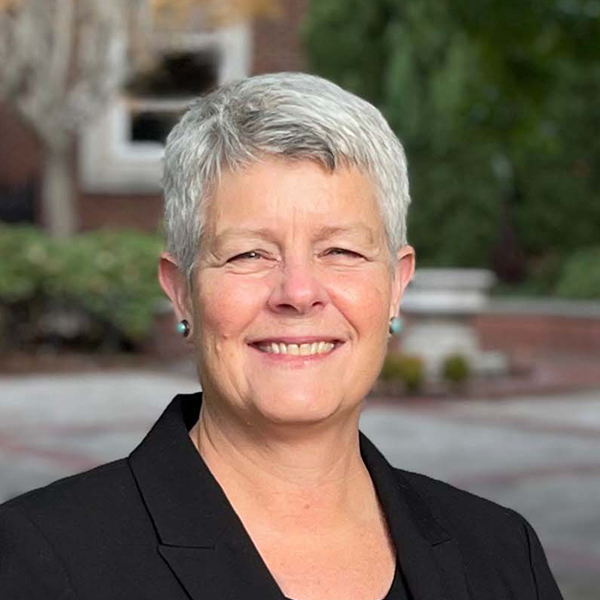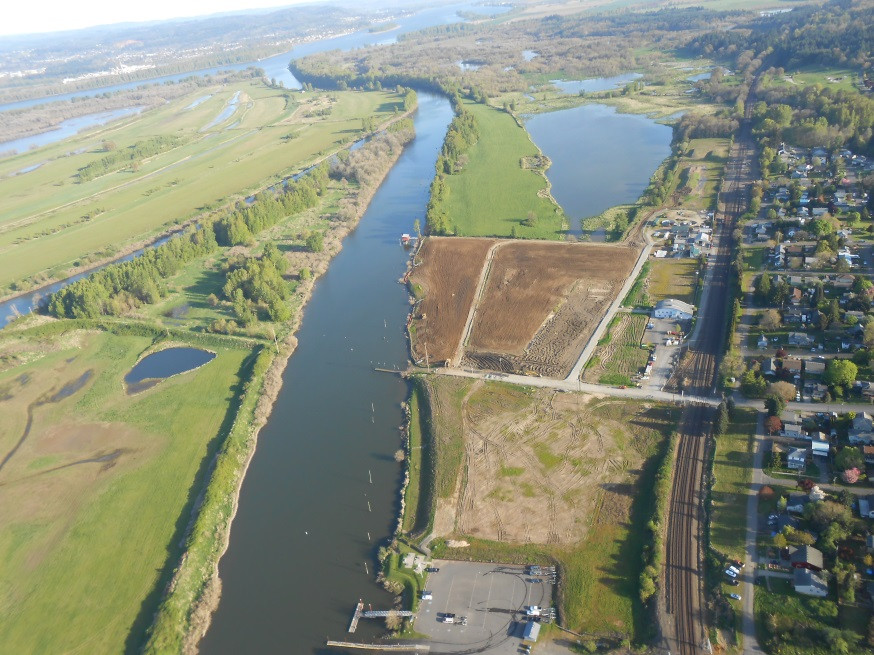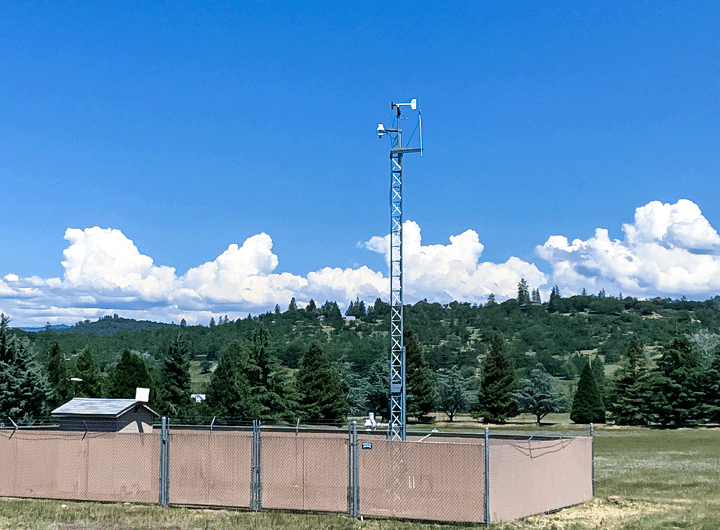Funding
State and Federal Grant Funding Opportunities in September and October 2025

Funding opportunities in September and October of 2025 provide support for ports and tribes, support affordable housing, improve childhood early learning, and fund improving infrastructure systems. As the federal administration continues to evaluate federal funding programs, there may be uncertainty about the ongoing availability of these grants. We have included only open funding sources for which funds have been allocated. As always, we recommend that you confirm status and eligibility requirements at the program website.

September and October 2025
Federal Funding Opportunities
$500 Million Available through the Port Infrastructure Development Program
USDOT program supports the safety, efficiency, or reliability of the movement of goods into, out of, around, or within a port.
The U.S. Department of Transportation Maritime Administration is providing up to $500 million in total to help ports improve the safety, efficiency, or reliability of the movement of goods through ports or intermodal connections. Eligible applicants include special purpose districts (such as ports) with a transportation function, tribes, local governments, and multijurisdictional entities. Eligible projects include those within port boundaries or projects directly related to port operations or an intermodal connection. Proposed projects may improve loading, unloading, or movement of goods; port operational improvements; environmental and emissions mitigation measures; or infrastructure to support seafood-related business. A 20 percent match is required for most projects; however, projects in rural areas or for small ports may be eligible for a reduced matching percentage. Applications are due September 10, 2025. For more information, visit the Port Infrastructure Development Program page.
Funding Available to Develop Infrastructure for Economic Development
USEDA program supports planning for and constructing needed infrastructure.
The U.S. Economic Development Administration assists state and local entities in responding to a wide range of economic challenges through the development, updating, or refinement of a comprehensive economic development strategy and grants to support the execution of activities identified in a CEDS, such as infrastructure improvements (including site acquisition), site preparation, construction, rehabilitation, and equipping of facilities. Eligible projects include market and environmental studies, planning or construction, and capitalizing or recapitalizing Revolving Loan Funds to help small businesses. Eligible applicants include district organizations of EDA-designated economic development districts, tribes, local governments, and multijurisdictional entities. Typical awards range from $600,000 to $5 million. A 50 percent match is required for most projects; however, reduced matching percentages may be provided for projects in areas of economic distress. Applications are accepted on an ongoing basis until funding runs out. For more information, visit the Economic Adjustment Assistance page.
$25 Million Anticipated for Tribal Transportation Safety Planning
Program to improve safety in tribal areas is estimated to open funding in early October.
The U.S. Department of Transportation has announced it plans to open the application period for approximately $25 million in funding for federally recognized tribes in early October 2025. The program goal is to assist tribes in developing strategies, activities, and projects on public roads to correct or improve a hazard or address a highway safety problem. Some eligible project types include the addition of features such as roundabouts and rumble strips; safety improvements for pedestrians, cyclists, or persons with disabilities; traffic-calming features; installation or replacement of signage; safety planning; collecting safety data; and many others. For projects on facilities not owned by a tribe, a letter of support from the facility owner is required. Matching funds are not anticipated to be required; however, if the number of qualified applications exceeds the available funding, then applicants with leveraged funds will receive priority consideration. Applications are anticipated to be accepted October 1, 2025, through January 15, 2026. To learn more, visit the Tribal Transportation Program Safety Fund website.
Up to $5 Million Available to Reduce Threats to Public Safety for Tribes
Program supports tribes in making improvements that support public health and safety.
The U.S. Department of Housing and Urban Development is providing funding to help tribes alleviate or remove imminent threats to health or safety. Eligible projects include acquiring land or buildings, improving public facilities buildings or infrastructure, assisting community members with relocation or housing, or constructing or improving utilities. Eligible applicants include tribes and tribal organization. Awards are available for up to $750,000 or up to $1.5 million, depending on type of disaster. No match is required. Applications are reviewed and accepted on a rolling basis. To learn more, visit the Indian Community Development Block Grant Program page under Imminent Threat Grants.
More than a $255 Million in EPA Assessment, Coalition, and Cleanup Grant Funds Available in September
This is the last year that the program will be funded through the Bipartisan Infrastructure Law at this level.
In early to mid-September, The U.S. Environmental Protection Agency will publish its notices of funding opportunities for its Brownfields Program assessment, coalition, and cleanup grants. More than $255 million in total funding will be available. This will be the last year that the funding will come from the Bipartisan Infrastructure Law, which has funded the program at unprecedented levels. More than ever, applicants—which can include tribes, local governments, coalitions of entities, and states—should try to take advantage of this program. For applicants that have already received grants, EPA has relaxed the spend-down thresholds to 70 percent, another indication that the agency is trying to get as much funding into the hands of as many applicants as possible. NOFOs will likely be released after September 8, but prospective applicants are advised to visit the Multipurpose, Assessment, RLF, and Cleanup Grant Application Resources page and scroll down to Open Applications as early as September 2. Once the NOFOs are released, applicants will have 60 calendar days to prepare and submit applications.
Up to $2 Million Available per Tribe for Drought Relief
Program supports water resource protection and related tribal trust resources.
The U.S. Bureau of Reclamation is providing funding to assist tribes in western states to develop, manage, and protect their water and water-related resources. Eligible proposals must mitigate drought impacts, increase resiliency to drought, reduce reliance in declining water resources, increase the efficiency of water delivery, mitigate the loss of water and related tribal trust resources, or address drinking water shortages. Emergency drought relief is available at up to $2 million per project (and per tribe). No match is required. Applications are due October 14, 2025. To learn more, visit the Native American Affairs Program page and the links under Notice of Funding Opportunities, Emergency Drought Relief for Tribes Fiscal Year 2025.

September and October 2025
Washington State Funding Opportunities
Up to $700,000 in Remedial Action Grants Available for Local Governments with a No Further Action Determination
To be eligible, applicants must complete a cultural resources consultation during cleanup.
The Washington State Department of Ecology has indicated that $700,000 will be available in fall 2025 for Independent Remedial Action grants. These grants, which provide support for applicants to clean up contamination under Ecology’s Voluntary Cleanup Program, will be available to local governments that have received a No Further Action determination. Eligible project types include interim actions, remedial plans and investigations, feasibility studies and remedy selection, remedy design and construction, or one year of remedy operation. The standard match requirement is 50 percent, but applicants representing economically disadvantaged communities may be required to match 25 percent or less of project costs, decided on a case-by-case basis. Applications will be accepted on an ongoing basis until June 2026. To learn more, visit the Independent Remedial Action Grants website.
Assistance for Comprehensive Plan Updates in Washington
Cities and counties are eligible for funding to complete required elements.
The Washington State Department of Commerce is providing grants for cities and counties planning under the Growth Management Act and developing updates to their comprehensive plans or development regulations. Jurisdictions are eligible based on the due date of their update and are notified of their eligibility by Commerce. Beginning July 1, 2025, counties and cities with a 2027 periodic update deadline will be eligible to receive funding, which is distributed over the course of two fiscal years. Grant amounts vary according to a jurisdiction’s population and planning status. No match is required. Applications for funding are due October 17, 2025. For more information, visit the Periodic Update Grants page.
Up to $1 Million Available to Connect New Affordable Housing to Municipal Systems in Washington
Program aims to help local governments spur development.
The Washington State Department of Commerce is providing up to $1 million per project to fund utility improvements and system development charges to connect new affordable housing developments to municipal systems. Eligible applicants include cities, counties, and public utilities. Eligible costs include sewer, stormwater, and right-of-way infrastructure costs that support an affordable housing project, including design, architectural, and engineering work; permits and fees; construction costs; related equipment; land acquisition if purchased for the utility project; and other costs including system development charges. No match is required. Applications for funding are due by September 26, 2025. For more information, visit the Connecting Housing to Infrastructure Program page.
$72 Million Available to Support Affordable Housing Home Ownership in Washington
Program aims to increase the number of homeowners in the state.
The Washington State Department of Commerce is providing funding to boost the number of low-income home buyers and the amount of affordable housing stock available for purchase. Eligible applicants include tribes, local governments and housing authorities, nonprofits, and behavioral health organizations. Eligible projects must assist first-time low-income buyers. Projects must create affordable housing units or otherwise undertake activities resulting in an increase of affordable housing stock in Washington state. Up to $6 million will be available for a new construction or acquisition project; up to $4 million will be available for an affordability subsidy; and up to $3 million will be available for down payment assistance. For urban areas, projects must include funds from other sources. The deadline for the submittal of waivers is September 6; applications are due by September 26, 2025. For more information, visit the Housing Trust Fund program page or download the program guidance and documents.
$112.2 Million Available to Develop Multifamily Rental Complexes in Washington
Program aims to increase the number of multifamily rental units in the state.
The Washington State Department of Commerce is providing funding to boost the number of new multifamily affordable housing projects available. Eligible applicants include tribes, local governments and housing authorities, and nonprofits. Eligible projects include new construction, rehabilitation, and acquisition at a single or multiple locations conducted in accordance with Housing Trust Fund guidance in the HTF Handbook. Projects must result in affordable housing for low-income people. Up to $5 million will be available per project. Applicants seeking supplemental Washington State HOME or federal National Housing Trust Fund funds for the acquisition and/or new construction of multifamily rental housing should consult the additional guidance in the HOME and National Housing Trust Fund notice of funding availability (NOFA #MHU-2025-02). For the main Housing Trust Fund program, waiver requests for funding limits must clearly document the requester’s attempt to secure other resources. Waiver requests must be submitted by October 2, 2025; applications are due by October 16, 2025. For more information, visit the Housing Trust Fund program page or download the HTF program guidance and documents.
Funding Available for Early Learning Facilities
Funding supports maintaining or expanding early learning programs and facilities.
The Washington State Department of Commerce’s Early Learning Facilities Program helps Early Childhood Education and Assistance Program contractors and Working Connections Child Care providers to expand, remodel, purchase, or construct early learning facilities and classrooms necessary to support early learning opportunities for children from low-income households. Eligible applicants include nonprofits, public entities, K-12 schools and districts, tribes and for-profit businesses. Grants are in the form of reimbursement for capital projects. The application period opens on September 1 and closes on October 31, 2025. To learn more, visit the Early Learning Facilities Program website.

September and October 2025
Oregon State Funding Opportunities
Multiple Grants for Oregon Parks Open Now or Opening Soon
The Oregon Parks and Recreation Department announces five new grants for fall 2025.
Approximately $1.6 million is available through the Oregon Parks and Recreation Department (OPRD) Recreational Trails Program. Eligible projects include the development and restoration of motorized and nonmotorized trails, trailheads, trail building and maintenance equipment, accessibility assessments, and more. Eligible applicants include local governments, state agencies, federal agencies, tribal governments, and eligible nonprofits. Letters of Intent are due on the OPRD Grants website by September 30, and completed applications are due on November 15, 2025. For more information, visit the Recreational Trails Program website.
Approximately $8 million is anticipated to be available through the OPRD Land and Water Conservation Fund. Eligible projects include the development, rehabilitation, and acquisition of a wide variety of outdoor recreation facilities. Eligible applicants include local governments, certain state agencies, and tribal governments. The application period opens September 15 and applications are due on the OPRD Grants website on November 17, 2025. For more information, visit the Land and Water Conservation Fund website.
Funding is also available through the OPRD All-Terrain Vehicle Grant Program. Eligible uses include operations and maintenance, law enforcement patrols, planning, development, land acquisition, safety education, and emergency medical services. Eligible applicants include local governments, state agencies, federal agencies, tribal governments, nonprofits, and private landowners or managers that provide public off-highway vehicle recreation. The application period opens September 3, letters of intent are due on the OPRD Grants website by October 3, and completed applications are due on November 3, 2025. For further information, please visit the All-Terrain Vehicle Grant Program website.
Approximately $2 million is available through the OPRD County Opportunity Grant Program. Eligible projects include the acquisition, development, rehabilitation, and planning of county park and recreation areas that provide camping facilities. All counties in Oregon are eligible to apply. Applications are due on the OPRD Grants website on October 1, 2025. For further information, please visit the County Opportunity Grant Program webpage.
Approximately $380,000 is available through the OPRD Oregon Heritage Grant. Eligible projects are those that preserve, develop, or interpret Oregon's cultural heritage. Priority will be given to projects for threatened heritage resources and/or heritage resources of statewide significance. Eligible applicants include tribal governments, local governments, universities and colleges, and nonprofits. Applications are due on the OPRD Grants website on October 2, 2025. For further information, please visit the Oregon Heritage Grant webpage.
Contact
Contact Seth for help with grant application and strategy.





